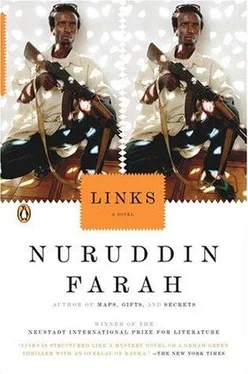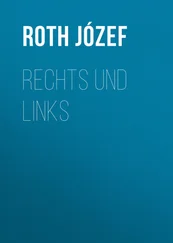Bile explained that for some time after Raasta’s birth, he made a point of gathering as much information as he could from other countries, and learned of other “special” children, born to societies torn apart by internal conflicts. Described in newspapers, magazines, and radio commentaries as “miracles,” these children revealed themselves in measured intervals, and in different areas where internecine wars were the order of the day. They were born to unsuspecting parents in Senegal, Kashmir, Tanzania, Somalia, Bosnia, Colombia, Peru, Palestine, and in the mountainous Kwanziris of Uganda, near that country’s border with Rwanda and Congo.
Bile looked like a proud parent praising his offspring. Jeebleh listened attentively as Bile described Raasta’s uniqueness and pointed out that, unlike the others, his niece had “secular” beginnings, and nothing to do with the religious fervor.
Jeebleh asked his friend to name another “miracle” child.
Bile narrowed his eyes to the size of ants and said, “I can name one such child, sure. A Tanzanian boy, Sherifu, said to have come out of his mother’s womb chanting, ‘There is no other god but Allah.’”
“Kind of a new messiah?”
“He’s been described by some Islamic scholars as an angel, and been welcomed with the pomp and ceremony given to a dignitary in a number of African countries, most notably in Senegal, where crowds have gathered to hear him chant the Koran. Three African heads of state have received him, including Gadhafi in Libya, Kabila in Congo, Idriss Deby in Chad. He’s also met the American Nation of Islam leader Louis Farrakhan. He’s carried around in a gold-leafed throne by crowds in a frenzy, chanting the names of Allah, and he recites the Koran. Women swoon and collapse, and men fight one another to get nearer to him.”
“Now, why do we need a Sherifu or a Raasta?”
“Because people are lost,” Bile said, “and they hope to find their way back to Allah or to peace of mind through an intermediary. In fact, Sherifu has been described as a divine instrument, because he could recite the Koran at the tender age of three. Raasta is seen as a symbol of peace because of what she represents for people down here. Moreover, the fact that Sherifu is proficient in a number of languages, even though he has never been to school — he speaks Arabic, French, and a handful of African languages spoken in countries where he has never been — is seen as miraculous.”
“What about Raasta?”
“Like Sherifu,” said Bile, “Raasta is exceptionally versatile and picks up languages very fast. What’s more, she gives shapes to the links between words and their meanings, and then fits them into chains of her own choosing.”
“Tell me more,” Jeebleh said.
“I recall the day Seamus asked her how she was doing, and she replied that she felt as frightened as a leaf on a tree, drawing itself in, afraid that someone passing by might cut it off. Another day, after one of her parents’ quarrels, she compared herself to a tooth rotting at the root, with no gum to hold it.”
Bile told of another occasion, when Raasta, not yet three, explained why she had chosen him as her surrogate parent. She did so, she said, because “Uncle and I are bound together with the clear thread of a spider’s web, visible only with the rays of sunlight in the background.”
Jeebleh asked, “Compared with Sherifu, who could recite verses as a toddler, what could Raasta do at a similar age?”
“Raasta, at two, could speak of the things she knew about when she was a mere fetus, and how she was in touch with things through her own baby-faint heartbeat. She developed fast in the womb of her mother’s imagining, she would say, and was fully grown by the time she came into the world.”
Jeebleh remembered Bile talking at length about the day Raasta was born, and how his arrival had complicated matters for all concerned. “Would you say Raasta is aware of her own special qualities?” he asked.
“Raasta remembers watching her mother behaving awkwardly, throwing her hands up in despair, remembers hearing her say terrible things about Faahiye, and her parents quarreling fiercely, in private and public. She says that her parents behave as though they have no idea that every birth howls with its own need and is burdened with the histories of its antecedents.”
Jeebleh wished he could’ve seen the young thing, born with a head of raven-black locks. He thought of how full of stir and gorgeous she was, how calming to hold. He imagined her cry like the cawing of an excited crow. “And she asks rhetorical questions, doesn’t she?” he said.
“She wants to know if a tree rotten to the core can bear a healthy fruit worth picking.”
“People have described her as the Protected One. What does that mean?”
“I don’t know whether she herself is protected,” Bile said. “I’ve never actually seen her in imminent danger. But I’ve never seen her harmed either. I know that people believe that anyone in her proximity is safe from the harms of the civil war.”
“Hence a miracle child?”
“She is seen as a symbol of peace, that’s right.”
JEEBLEH WOKE AFTER A BRIEF SLEEP TO THE SOFT SOUND OF A CHILD’S FEET pattering back and forth in the room. He was a lot groggier than was good for him, and he fought hard not to make much of his state of exhaustion or confusion. Clumsily rubbing his eyes, and then becoming conscious of the unfinished business of his uncut hair, he willed his expression to change instantly to one of delight at the sight of Raasta standing over him.
He scrambled out of bed, and then apologized. Perhaps he would have preferred it if she had not come upon him sleeping, or tired. Already dressed and ready to face the day, she was elegant in her composure, waiting. There was something noble in how she held herself, as though ready for an event of extraordinary nature.
Here was the rub: For one so young, she had a face as ancient as the roots of a baobab, and yet young-looking, a joy to gaze at and adore. He reckoned she was in her public mood, and it was time he prepared himself for what she had to say. He cleared his throat, took a solid grip of himself in good time, and said, “How are things with the world this morning?”
“Dajaal wants to talk to you,” she said, and seeing that he looked so bedraggled, she smiled to herself.
At the mention of Dajaal’s name, several of the latent worries he had lived with for the last few days came out. Had death, which kept a close watch on his movements, paid a visit to someone, and if so, on whom had death called? “Where is he?” he asked.
Jeebleh caught sight of her as she withdrew into her private world, where she behaved like the child she was. But for these occasional slips, Jeebleh thought Raasta could offer the best tutorials in their art to the most professional of actors. She completely inhabited the role she had been assigned to play. She stood still, like a ballerina awaiting her music. “He said that you should meet him at the clinic,” she replied, “and from there he’ll take you and the builder to the cemetery.”
He could tell from her delivery that there was a second, more serious part of the message, and he waited, relieved that this time she didn’t appear to be lapsing into a kid’s universe. “Anything you haven’t told me yet?”
She turned nimbly away from him. Was she about to explode with the intensity of the part of the message she hadn’t yet delivered? His wandering mind took him back to his childhood, and to an Arabian folktale about a man who is about to be murdered: The victim asks his murderer to promise that after his death, he will visit his village, and recite to his orphaned children half a stanza of a poem he has written. The children understand their father’s coded message, and the murderer is apprehended.
Читать дальше












